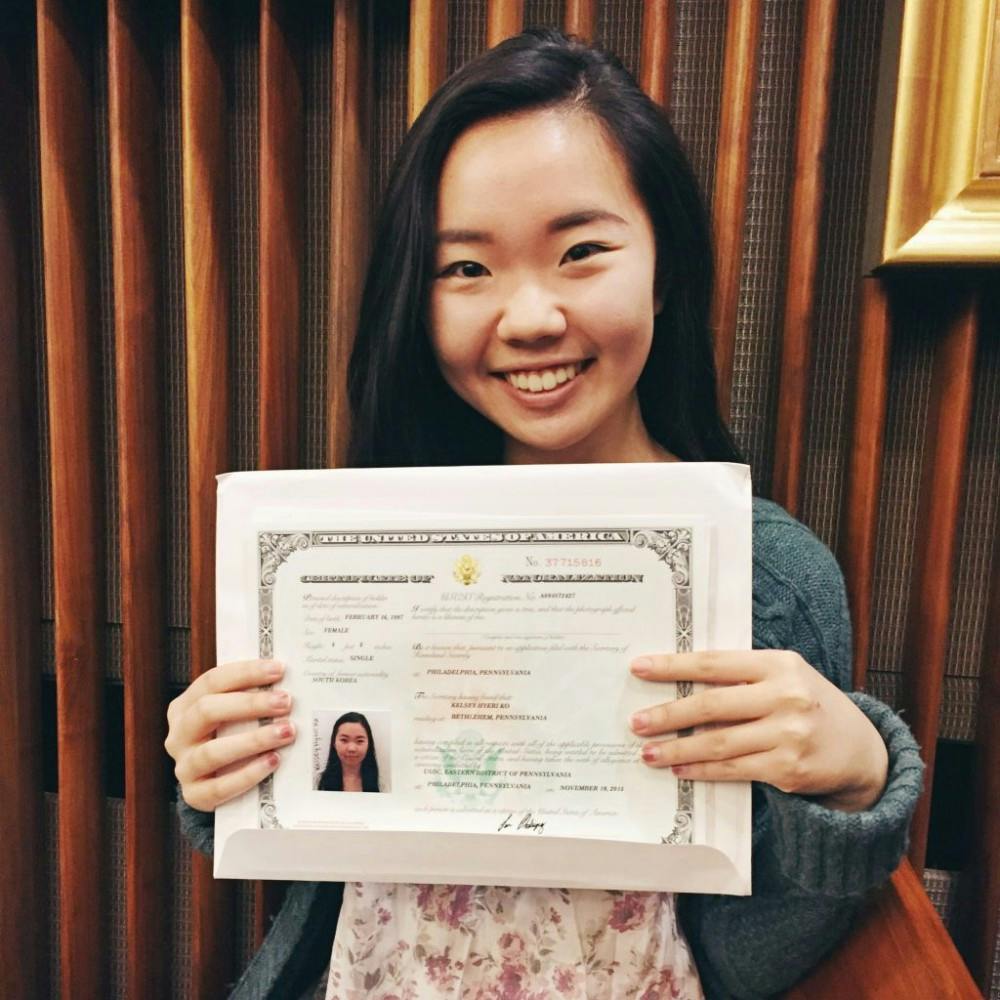Election day is right around the corner, and this year it falls exactly 11 days before my one-year anniversary of becoming an American citizen. No, I was not born in America — and this election, I can vote while my immigrant parents cannot.
When I was four years old, my grandparents put me on 12-hour flight from South Korea to the United States to meet my parents. At the time, my mom worked at a gift shop in Huntington Beach, California and sold souvenirs to customers in her broken English.
My dad attended law school by dayt and learned English during whatever free time he had.
I got my first taste of racism on my elementary school playground when a boy with floppy brown hair asked me why my eyes were so squinty and my face so flat.
I got my most recent taste of racism when Trump told me, in the pixelated version of himself on my TV screen, that my parents and I did not belong here. He thinks that my parents are taking America’s jobs. He thinks that there should be a wall in order to keep people like them from ever getting here today.
There are two reasons that this election is so important to me. It is both the first in which I can vote and the most personal one in my lifetime to date. When I walked into the U.S. District Court in Philadelphia last year on November 19, 2015, it was one of the proudest moments in my life.
I swore to give up allegiance to South Korea and to instead defend this country and honor it. I swore to stand by America and champion it.
Yet today, I am afraid. I am afraid because while I can proudly call myself an American, I am the child of two parents who are not. I still don’t know what that means, that somehow my single vote seems to carry my weight and that of my two parents who cannot vote.
I don’t know what it means that if Trump holds office, my parents will be considered outsiders in his eyes.
I’ve asked my parents, who are legal permanent residents of this country, why they do not simply become U.S. citizens in order to vote in this election. It would be easy. My dad is an immigration lawyer and works with clients all day, helping them obtain visas, green cards and citizenship.
My parents have both lived in the United States for over 20 years. And every time I ask them, they simply tell me that they do not want to let go of their Korean heritage. In my heart, my parents are Korean Americans. In the eyes of the U.S. law, they are just Koreans who are allowed to reside in America for as long as they’d like.
As a newly-minted citizen and child of immigrants, I’ve started to understand the complexities of what “citizenship” even means — just because I am no longer a Korean citizen, this does not seem to change the fact that I am still Korean in every other sense of the word. I look Korean, eat Korean food, speak the Korean language and visit the country and the rest of my family members who live there. Yet my documents and passport now say that I am American through and through.
This election I am realizing the privileges and rights a person gets as an American citizen in this country. Next month, I can vote. Someday I could even run for office. But today, I sit here and reflect upon what my vote will mean for me, my parents and every other immigrant — American or not — who has fought for their livelihood here when I cast my ballot in November.
There’s a lot of things I am, and there’s a lot of things I’m not. I am a first-generation immigrant and an American citizen, a weird oxymoron of labels that most people don’t associate with each other.
I am a daughter, a college student, a person whose parents loved her so much that they sacrificed everything for her — these things, I think a lot of people can relate to.
Most of all, I am not someone who supports the hatred and exclusion perpetrated against people who are trying to come to America in order to live better lives.
Four-year-old me had no idea that my parents’ decision to come to America would change my life forever. And for their sake, I will continue to believe that our country should be humbled that so many people admire its values of freedom and opportunity that they want to live here.





